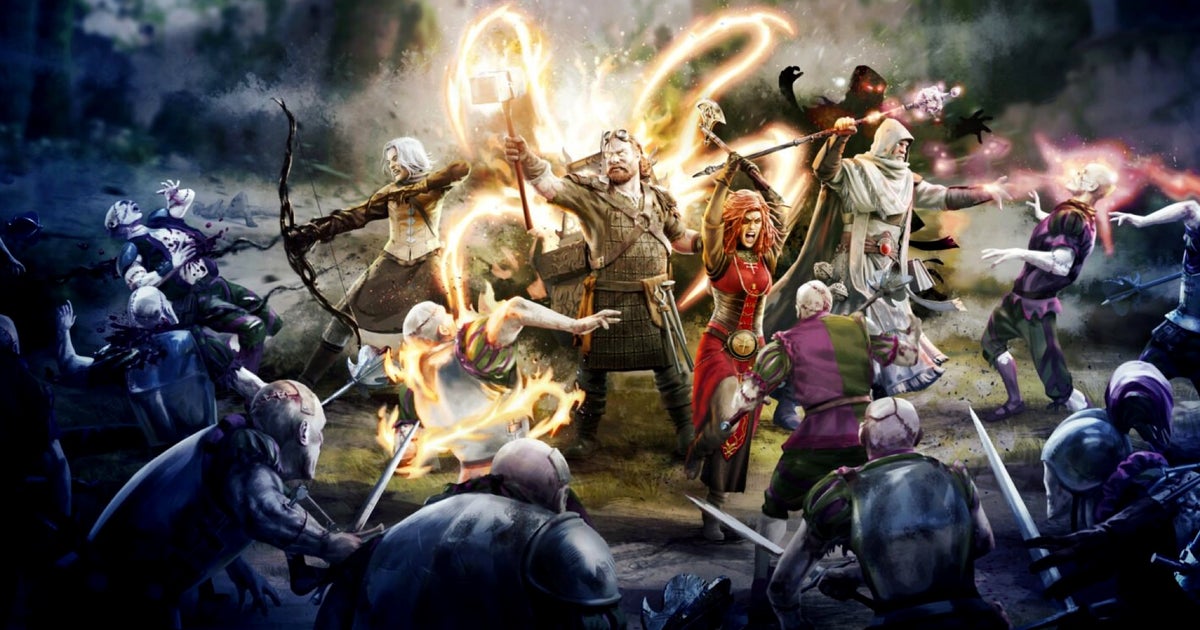Flaming Fowl, the developer behind card battler Fable Fortune and the acclaimed Gloomhaven video game adaptation, has unveiled its new project – but, in an unusual move, has also announced it’s shelving development and confirmed layoffs at the studio all at the same time.
Flaming Fowl, which was founded in 2016 by former members of original Fable developer Lionhead Studios, embarked on its rollercoaster of announcements in a post on Steam, beginning with a reveal for its new project, known as Ironmarked – a “1-3 player co-op RPG with turn-based combat” – and the launch of an accompanying demo.
In an unexpected and rather sobering twist, however, Flaming Fowl immediately followed Ironmarked’s unveiling with some unhappier news, revealing, “Unfortunately, due to the current lack of funding in the games industry, we are putting production on hold and have had to downsize the studio, letting go of some amazing people.”
“Although this is a difficult and sad time for everyone involved,” the studio continued, “we are very proud of what we were creating and want to share that with all of you. We also hope that by releasing this demo, we can help those people leaving us to secure new roles elsewhere, by demonstrating their outstanding work on the project.”
Flaming Fowl CEO Craig Oman offered further context for Ironmarked’s shelving and subsequent staff layoffs in an interview with VGC. “We’ve been working on the game for over a year,” he explained. “We had a publisher, but they pulled out last year around June, and we’ve been self-funding since August. We’ve been pitching to publishers since then, but they all said, ‘The game looks great, the team looks great, but we’re not signing anything right now’.”
“As soon as we finished Gloomhaven, we signed Ironmarked,” Oman continued. “We had multiple offers. But then a year and half later, we’ve gone back to a lot of the same publishers and they say they’re no longer looking for projects like this.”
Flaming Fowl’s inability to secure further funding has led to lay offs and a dramatic reduction in the size of its team. “Friday was the last day for most of the people at the company,” Oman noted. “We’re down to about nine people now, from around 30 people we were working with. It’s been difficult… I just hope they all find work quickly, because that’s the really painful thing.”
As for the decision to release an Ironmarked demo, despite development having officially halted at Flaming Fowl, Oman explained, “I just wanted to the game to see the light of day. I’ve worked in the industry for a long time, and there’s been so many times projects have been put on ice and never come back. I really don’t want it to be another one of these game that never come out and only a handful of people ever know about them.”
According to Flaming Fowl’s Ironmarked announcement, there’s some small hope that “with enough wishlists on Steam [to present to publishers]” the studio “will be able to find funding in the future for Ironmarked”. In the meantime, the remaining team members will focus on developing a small, self-funded strategy title, with the studio giving itself until the end of the year to release the project.
“We’re being very clear in the messaging [for the Ironmarked demo],” Oman added, “that the project has been put on hold because of the financial situation in the industry. If players want to help bring it back to life, then the best thing to do is to Wishlist it on Steam… Wishlists are a hugely important thing for anyone trying to launch a game on Steam. It’s a metric you can go to publishers with that gives them a clear indication of the market you can tap into… they’re just so risk averse.”
Flaming Fowl’s current predicament has become an increasingly familiar one for game development studios over the past 12 months, with a perfect storm of events in recent years having lead to dramatically reduced investment for new projects, as GamesIndustry.biz’s Chris Dring recently explained in an article for Eurogamer.

